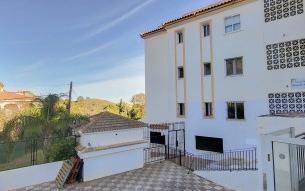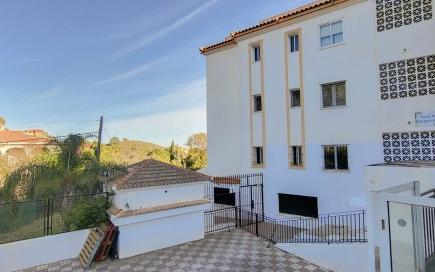
Unless you’re lucky enough to be retired, if you’re thinking of living in Spain then it’s likely you will need to work in Spain. For many ex-pats, the easiest and most convenient way to work in Spain is to register as self-employed and work for yourself! This is known as becoming ‘autonomo’ in Spain, and it is actually much more straightforward than you might think.
With that in mind, here’s everything you need to know about registering as self-employed in Spain:
What Does It Mean to Be Registered as Autonomo?
In very simple terms, autonomo is the Spanish term for being self-employed. It also covers individuals that are freelancers or those that run small businesses, provided those businesses are unincorporated. If you are earning money on these terms in Spain then you are legally obliged to register as Autonomo so that you can pay tax, as well as charge IVA (the Spanish equivalent of VAT) to their customers. If you have a contract of employment with a company or an individual then you are not considered to be self-employed in Spain and the following rules do not apply to you.
Do I Have to Register as Autonomo?
The rules regarding registering as self-employed (or registering as Autonomo) in Spain are very strict. It doesn’t matter if you are only earning very small sums, if you only take a one-off payment, or if your earnings are casual: you still have to register as self-employed. If you own a small bar or shop, work as a consultant and sell your services, or if you teach lessons in Spain (such as English lessons or piano lessons) these are all great examples of businesses that are independent and which must register as Autonomo.
There are some exceptions. If you are in a partnership (where you work alongside at least one other individual) you must register as ‘CB’ or ‘Comunidad de Bienes’ rather than Autonomo. This would tie you to your business partner, meaning that all the owners are equally responsible for any business debts.
Which Kind of Autonomo Are You?
There are two main categories of Autonomo in Spain, although you may then be broken into further sub categories by the Spanish authorities:
- If you are running a business, or trading in a commercial capacity (usually with commercial premises) then you are an Autonomo Empresarial.
- If you are a professional or freelancer then you are known as Autonomo Profesional.
Although you may be reluctant to register as Autonomo it will protect your business and yourself: it is the only way to make your business legal, and the registration process is surprisingly quick and easy.
How Easy is it to Register as Autonomo?
Registering as Autonomo is incredibly straightforward, with just two main parts to the process. First you register with the tax office (or Hacienda) and ensure that you are on the Census of Liable Taxpayers. To do this you simply complete a form Form 030.) Once this step is completed, you join the autonomo social security system: this is what will allow you to calculate and pay your taxes. In order to join this system you will need to present your NIE (a Spanish National Insurance Number), details of your bank account, and your work permit if you’re from outside of the EU, including the UK. This is usually a case of filling in another form.
If you struggle with the process, don’t speak enough Spanish to complete the paperwork, or would just rather someone else took care of the hassle for you, you could always hire a Gestor and they will complete the paperwork on your behalf, and go to the tax office with you to file it.
Paying the Correct Social Security Contributions
Paying into the Spanish social security system, and receiving the benefits that accompany this, is one of the main advantages of registering as Autonomo in Spain. The Social Security System in Spain is very similar to the National Insurance system in the UK but, unlike in the UK, if you’re not paying into the Spanish system then you’re not entitled to access the public health system. Making social security contributions also means that you will be entitled to a state pension, sick pay, and maternity and paternity leave benefits too.
In order to ensure you are paying the correct amount of social security payments, you need to submit a form confirming your autonomo classification; different categories of employment pay different levels of social security. The amount you pay each month can be calculated by taking the base amount that everyone pays and then multiplying the figure by the amount set according to your category.
As with most social security systems, the more you earn the more you will pay; in 2021 the base amount for the different categories of autonomo categories ranged from €944.40 and €4,070.10. When this is multiplied by 30.6%, the minimum amount you could end up paying each money is €288.98.
If you’re new to self-employment though, to help you get on your feet, you will pay only €60 per month for the first 12 months of self-employment. This figure is increased to €144.50 per month until the 18 month point and then €202.30 per month until you have been self employed for 2 years. At this point your payments will default to the figures mentioned above, unless you are male under the age of 30 or a female under the age of 35: then you will be entitled to a disount of 30% for an extra 12 months before the standard terms apply.
Are There Any Other Obligations I Need to Know About?
You’ve registered as self-employed and you’re paying your social security contributions every month. What next? Well, here are the other obligations that you need to be aware of as an autonomo:
- Provide quarterly tax and VAT (IVA) returns. As you might expect, you will be obliged to pay tax on all of your income.
- Issue properly drawn-up invoices, and keep a copy of these for your own records
- Keep well-organised accounts. You should be aware of the legal accounting requirements in Spain and ensure you adhere to them.
- If you are invoicing other businesses or individuals that are registerd as autonomo then you should retain 19% of any of these invoices to cover your advanced income tax.
Claiming Expenses as an Autonomo
Working as an autonomo often incurs expenses that you simply wouldn’t have to consider if you were working for another firm or body. In order to redress this, in 2017 the Spanish government implemented some amendments to the autonomo rules, and many of these were surrounding the rights of autonomos to claim expenses.
- Up to 50% of business-related petrol expenses can be claimed back.
- Up to 20% of electricity, gas and water costs can be claimed back if you are using your own home as a workspace. working from home.
- If you have to travel away from home for work then you can claim up to €26.67 per day (if you’re travelling in Spain) and €48.08 per day (if you’re travelling abroad) for food during business trips.
If it’s likely that you will be able to take advantage of claiming any of these deductions then you may wish to consider hiring an accountant, who will be best placed to file your tax returns for you, and ensure you are taking advantage of as many deductions as possible. Expect to pay a retainer of around 60 euros per month for this service.
What If I Stop Being Self-Employed?
It is as simple to de-register your autonomo status as it is to regiter as an autonomo. In fact, it may be considered to be simpler! All you have to do is complete the same forms you initially used to register, and submit these to inform the tax office that your employment status has changed.
Are you thinking of moving to Spain? Looking to escape the cold and rainy weather in the UK and make an escape to the sun? Then why not get in touch with our local property experts, who are perfectly placed to help you find the Spanish home of your dreams. We’re excited to help you make your next move your best move!

 English
English Español
Español Deutsch
Deutsch Français
Français Svenska
Svenska Nederlands
Nederlands Italiano
Italiano Norsk
Norsk Русский
Русский


































